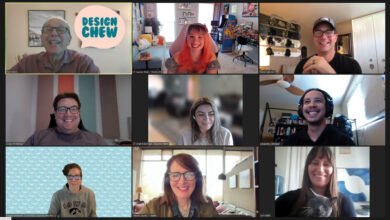
Visit the websites for big-box retailers like Target, Walmart, Lowe’s, Home Depot, and Amazon. They each have way too many items in a particular category, and it’s overwhelming to try to determine what satisfies your needs. What do you do? You go straight for the “Sort By” and choose “Price – Low to High.”
It’s ok. We all do it.
There are tons of metadata tags on each item with lots of checkboxes along the left navigation column. You have plenty of things to choose from. The problem is none of it means anything to you.
- Shopping for a refrigerator? It’s a box that keeps things cold.
- Shopping for an adaptor for your computer? It’s just connecting my new computer with no disc drive or USB ports to my gadget.
- Shopping for school supplies? We’re going to throw it away in a few months anyway.
Your perceptions of value are simple because you are not an expert in these areas like an appliance sales rep, a computer peripherals manufacturer, or a public-school administrator. You just want something that will work, and you don’t want to get ripped off. The rest of it is all confusing noise. Sound familiar? It’s the same thing your customers go through almost every day.
Your website is the first thing people see
With few exceptions, the first thing a prospect will see is your website. It’s one of the few things you have control over. You don’t have control over your retail space — your property developer made those decisions. You don’t have control over your Facebook company page; that’s decided by Meta. If you sell products through Etsy, Amazon FBA, or eBay, you also deal with the same problem. You don’t stand out.
Your website is your chance to make your mark and cut through the noise. Indiana University did a study last year that concluded that most websites look the same. They analyzed nearly 200,000 images across 10,000 websites and found that while the code was different, the code libraries for content management and database queries were the same. As a result, the internet has been losing its uniqueness since 2005. The study goes in-depth into the anthropologic and creative expression challenges associated with this.
Why should you care? You look identical to the competition.
Competitive differentiation
It is one of the single most difficult questions to answer and is typically a question answered only over a period of time — “Why should I buy from you?”
This is where the buzzwords enter the conversation — guarantee, service, local, award-winning, best of, etc.
It is very difficult to explain value to someone that does not know what to look for. They immediately start making comparisons to what they know. They oversimplify, or they “sort by price – low to high.”
By the time they contact you, they have absolutely considered alternatives. The good news: you’ve won half the battle. The bad news: how many prospects never walked through your door, picked up the phone, or clicked on your web form?
Cut through the noise
Google’s algorithm crawls your website on a periodic basis to index your site in its search results. What may not be common knowledge is how often this happens and what it’s looking for. The secret buried in long process documents and tech jargon is that it’s looking for differences and updates. If the crawler doesn’t identify differences from the last time it crawled your site, you may drop in the rankings. It makes sense from a business standpoint; Google is in the ad business. They want traffic so they can monetize it; they want to drive the searcher to new content to maximize its ad revenue. If your site is old and static, it isn’t interesting or ad-worthy unless you’re paying Google to advertise with them.
If you have a successful Google Ads account and you are seeing performance — more power to you. Not every business has the capability to buy keywords and optimize SEO.
The trick to maintaining favorable search results (without pay per click) is to continuously update your site and get Google to continue to crawl it. That’s good from a data perspective, but it’s also good for competitive differentiation. You want your site to look unique and fresh. If everyone uses Squarespace or Wix to build their site, all sites look the same. You want to be different.
It pays to make a good first impression
The first encounter with your brand is probably a web search. Then the prospect will compare you to other alternatives. They are probably going to compare you based on simple criteria:
- Quality of website: are there typos in the text? Is it easy to use? Is there a contact page?
- Proximity: how far away are you?
- Product/service pages: what do you do?
- Price: are you more expensive than the others?
Your website is your introduction to your customers. It is your full-time, front-line employee. Your brand is on full display. It’s a key make-or-break point for how and if you attract new business. If prospects can’t identify you from the rest, the first question they’ll ask is the dreaded “How much does it cost?”
You want that to be the last question they ask. Your website is the first step to getting you there.



